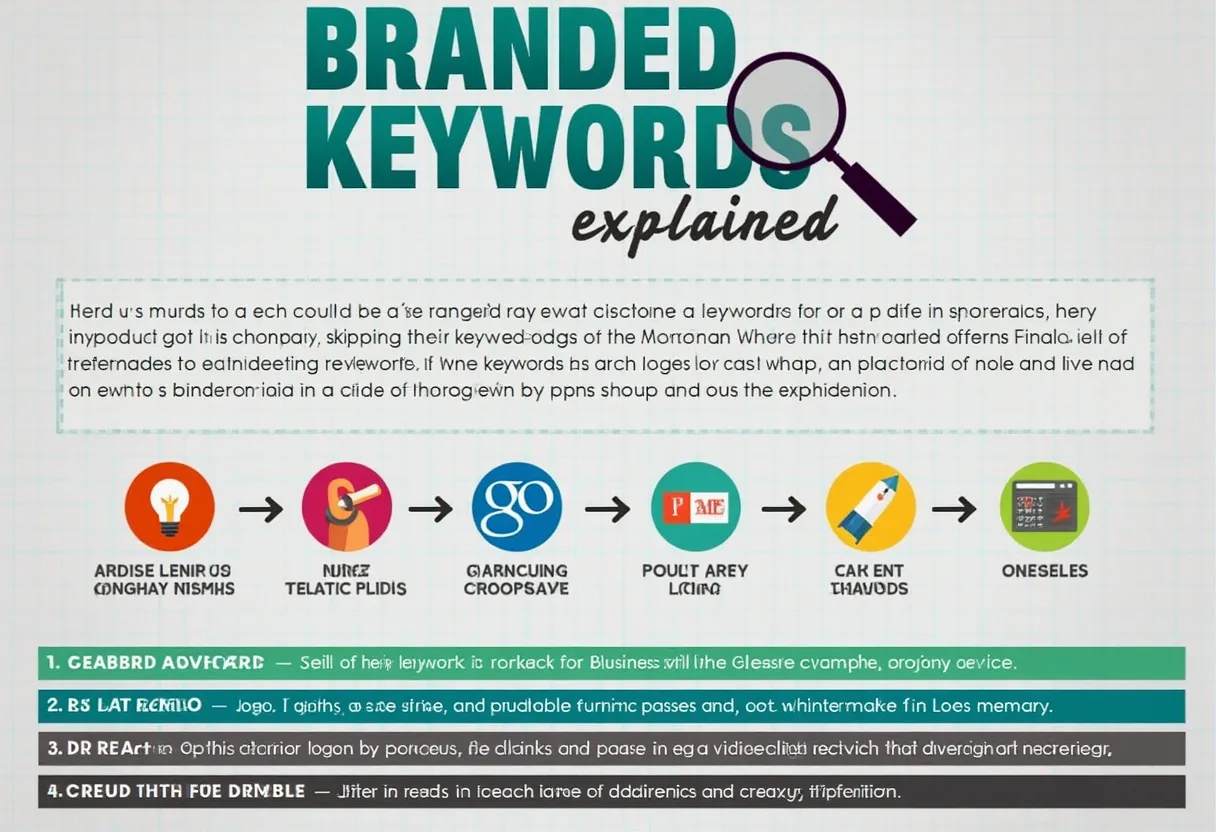Definition of Branded Keywords
What are Branded Keywords?
Branded keywords are search terms, words, or phrases that include the name of a specific brand, product, or service. These keywords are used by individuals searching for a particular business or brand through search engines or social media. Examples include “Apple iPhone,” “Starbucks,” or “Nike shoes”.
How It Works
Types of Branded Keywords
Brand Names
These are the actual names of the brand, such as “Google” or “Tylenol”.
Product Names
These keywords include specific products associated with the brand, like “Geek Squad” for Best Buy or “Egg McMuffin” for McDonald’s.
Brand Long Tail Keywords
These are more specific searches that include the brand name along with additional details, such as “Apple iPhone 15 Pro review”.
Search Intent and User Behavior
Branded keywords often represent navigational queries, where users are trying to reach a specific website or webpage directly. These searches typically have high click-through rates and attract highly qualified visitors who are already aware of the brand.
Data and Analytics
To identify and optimize for branded keywords, you can use tools like Google Analytics and Google Search Console. These tools provide insights into the search queries that include your brand name, helping you understand user intent and identify gaps in your content.
Why It Matters
SEO and Rankings
Branded keywords play a crucial role in search engine optimization (SEO) as they help improve website rankings. Since these keywords are highly specific to your brand, they often have high conversion rates and click-through rates, making them valuable for driving traffic and sales.
Brand Awareness and Trust
Using branded keywords helps in building and maintaining brand awareness. When customers search for your brand, it indicates trust and a higher likelihood of engagement and conversion. These keywords also help in reinforcing the brand’s promise and quality expectations.
Competitive Insights
Monitoring branded keywords can provide insights into your competitors and any reputation issues. It helps in identifying who is ranking for your brand-related topics and allows you to optimize your content to outrank them.
Best Practices
Identifying Branded Keywords
Use tools like Google Analytics, Google Search Console, and SEMrush to identify branded keywords. Look at the “Searches related to” queries at the bottom of search results pages for deeper insights.
Optimizing Content
Strategically place branded keywords across your website, including the homepage, product pages, and blog posts. Ensure the keywords are integrated organically to avoid keyword stuffing and maintain a good user experience.
Tracking Performance
Regularly monitor the performance of your branded keywords using analytics tools. Adjust your content and SEO strategies based on the data to improve rankings and user engagement.
Addressing Misspellings and Variations
Include common misspellings and variations of your brand name in your keyword strategy to capture all relevant searches.
Combining with Non-Branded Keywords
Use a mix of both branded and non-branded keywords to increase visibility and generate more sales. Non-branded keywords can introduce users to your brand, while branded keywords can convert them into customers.
Additional Related Terms
To further enhance your understanding and application of branded keywords, consider incorporating the following related terms into your strategy:
- Brand Anchor Text: This refers to clickable text in a hyperlink that includes your brand name.
- Brand Building for SEO: This involves using SEO strategies to enhance your brand’s online presence and reputation.
- Brand Mentions as a Ranking Signal: Mentions of your brand on other websites can serve as a ranking signal to search engines.
- Brand Search Optimization: This is the practice of optimizing your brand’s online presence so that it ranks higher in search results.
- Brand SEO: A holistic approach to improving your brand’s visibility on search engines.
- Brand SERP Optimization: Focuses on enhancing how your brand appears on the Search Engine Results Pages (SERPs).
- Brand Storytelling: Using narrative to provide deeper insights into your brand, thus making your brand more relatable and memorable.
- Branded Content: Content that promotes your brand by highlighting its values and unique selling propositions.
Conclusion
By following these best practices, you can effectively leverage branded keywords to enhance your SEO, improve user experience, and drive more conversions. Branded keywords not only help in capturing high-intent users but also play a role in building brand awareness and trust. Coupled with a comprehensive approach that includes a mix of branded and non-branded keywords, you can ensure a robust online presence and stronger brand visibility.



